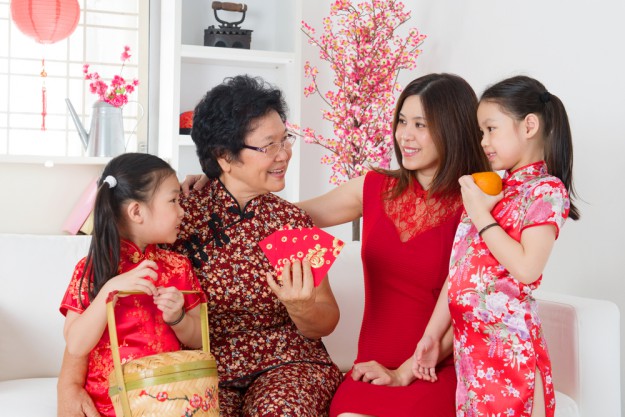Chinese New Year: How not to offend your Chinese friends during the holiday
updated the 14 July 2015 à 18:32Got invited to your first Reunion dinner? You might want to brush up a little on the customs and habits of Chinese New Year before you commit the cardinal sin of ignorance.
The beauty of living in a multi-cultural city like Singapore is the fact you get to celebrate not just one, but many traditions and holidays. As the biggest and most celebrated national holiday, Chinese New Year is a time where families gather and enjoy festivities which encourage strengthening the bonds between family members and friends.
So, if it’s the first time you’re invited to a Chinese friend’s home to join the Chinese New Year celebrations, make sure you do your homework first! You might want to brush up a little on this holiday’s customs and habits before you commit the cardinal sin of ignorance.
Here are a couple of things to note. You can thank us later!
Wear bright auspicious colours
Red would the best option for Chinese New Year, but as long as you’re in a bright cheery shade, you’re in the clear. Try to avoid black, white or blue as those are colours of mourning.
Bring two Mandarin oranges
Ensure that you have two Mandarin oranges with you before visiting your friend. The oranges symbolise gold during the Chinese New Year, as when it said in Cantonese –Kum – it sounds like gold. Offer the oranges to your guest or the eldest person in the family. Take the oranges back home before you leave, as you’re not supposed to leave your “gold” behind.
Greet your host
It is very important to greet your host and the elders in the family when visiting. Always greet the elders first and respect the hierarchy in the family. You can say a simple “Hello” and if you want to be really on point add a “Gong xi fa cai!”. Literally it means “congratulations to wealth” for the year ahead.
The Ang Pow Issue
To give or not to give? That is the question. Well you only have to give out red packets of gift money or “ang pows” to children, elders and singles, if you’re married. So if you are single and your host gives you an ang pow, don’t be surprised or refuse the gift. It’s tradition.
Keep the conversation light
Avoid heavy or unhappy topics during your gathering, as it is inauspicious to talk about sad or controversial issues. That’s usually etiquette for most parties, but this is even more so for Chinese New Year as a peaceful household during this time sets the tone for the rest of the year.
Cheryl Lee




